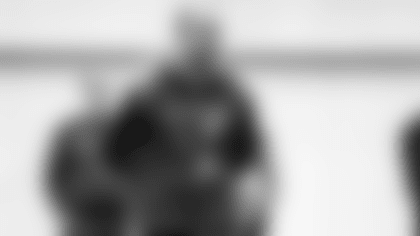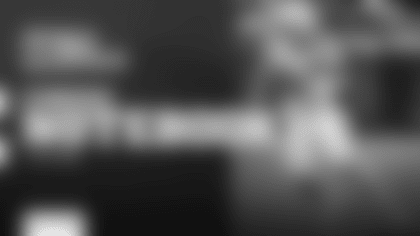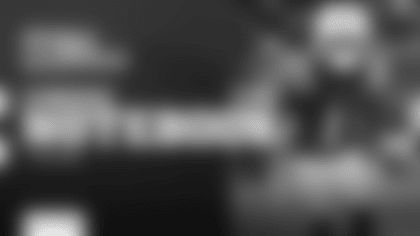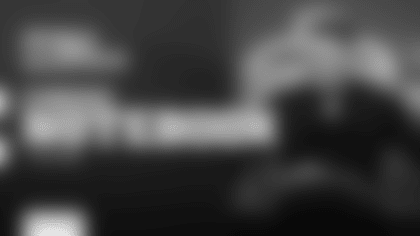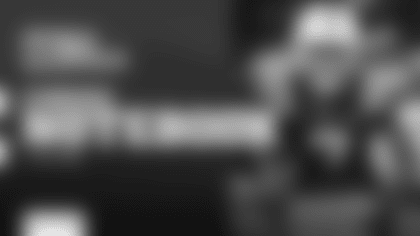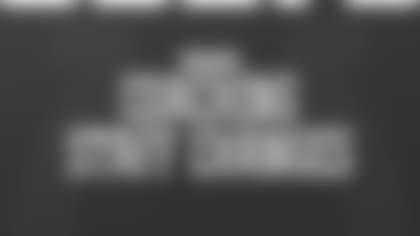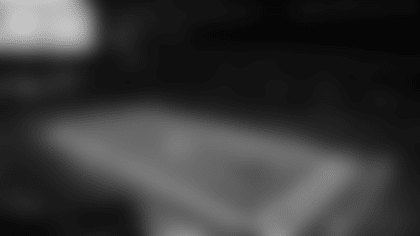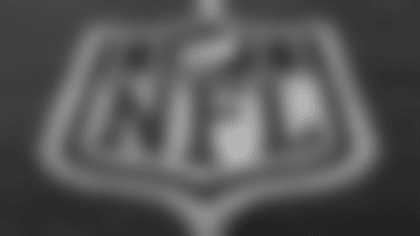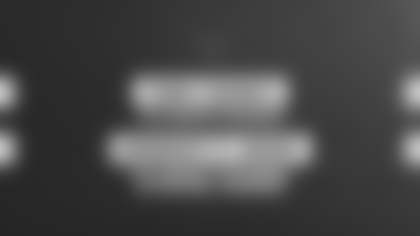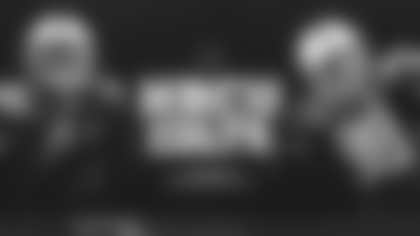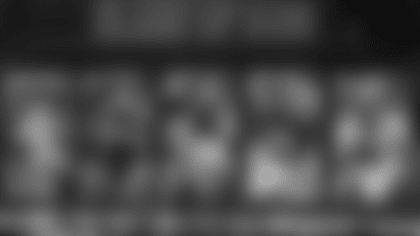Bill Polian is in his first season as Colts vice chairman after spending the previous 13 seasons as Colts president. Polian has a resume unique in the NFL. The only man to win NFL Executive of the Year six times, Polian in the 1980s built the Buffalo Bills into a four-time Super Bowl participant. In the mid-1990s, he built the expansion Carolina Panthers into a team that made the NFC Championship game in its second season, 1996. Since joining Indianapolis in 1998, he built the Colts from a 3-13 team in 1997 and 1998 into one that has made the playoffs 11 of the last 12 seasons, including AFC Championship game appearances after the 2003, 2006 and 2009 seasons, an AFC East title in 1999, AFC South titles in 2003, 2004, 2005, 2006, 2007, 2009 and 2010, Super Bowl appearances following the 2006 and 2009 seasons and a Super Bowl championship following the 2006 season. Each week during the season, in The Polian Corner, Polian and Colts.com will discuss issues pertinent to the Colts and the rest of the NFL.
The Polian Corner will run in two installments each week. Below is this week's second installment:
Q: Will the club ever stop playing the Cover-2 Defense? Do you think the injuries on the offensive line are due to a lack of training camp?
A: Okay, good questions. The answer to your second question is 'no.' The injuries on the offensive line are what we call trauma injuries. In (offensive tackle) Anthony Castonzo's case it was an ankle sprain. In (offensive tackle) Ben Ijalana's case it was a knee injury that just occurred on a grass field, which defies most of the conventional wisdom. In (offensive guard) Mike Pollak's case it's a pulled hamstring, which is a little bit unique among offensive linemen. Nonetheless, that's a fatigue injury which doesn't equate to a lack of training camp or off-season program. (Offensive guard) Joe Reitz's injury is a meniscus injury, cartilage in his knee, which, once again, is a trauma injury and has nothing to do with conditioning. In (defensive tackle) Eric Foster's case (it was) just a gruesome dislocation of his ankle and broken leg. That is a quintessential trauma injury, and (defensive tackle) Drake Nevis is an injury to his tailbone, which occurred in a game because he was blindsided and just landed on it. Seth Olsen is a broken hand, so every one one of those six injuries to the linemen are all trauma injuries, or in Mike Pollak's case clearly just a fatigue injury that happens in the game and really (had) nothing to do with off-season or training camp. Quinn Qjinnaka last (Sunday, his) knee, got rolled up on, so that's the way. You do have injuries in football, unfortunately. You cannot make it injury-free. You are not going to eliminate injuries in a game where there is physical contact. The same is true in hockey or lacrosse. Any game where there is physical contact you are going to have injuries, and we've had more than our share. They have nothing to do with conditioning or shortened training camp, or anything like that.
Q: The Tampa-2 Defense?
A: Well, I respectfully disagree, and I think we've had this conversation before. If it's played correctly, meaning that the techniques are clean and that everybody gets their job done and it is a technique defense without question, then it's a good, solid defense, which leads to sacks and leads to interceptions. Now, what won't it do? It will give up short, over-the-middle passes, which causes people who do not believe in the defense to think that there is a fatal flaw there. It tends to give up longer drives than some people might like. The other team can possess the ball if they want to throw over the middle, they can. It should not give up long passes, and you absolutely should get off the field on third-and-six or more at the rate of about 60 percent. We're off the field on third-down at a rate of about 47 percent, which is way, way too high. Way too high. It is a good defense. Now having said that, as we assess our personnel in the off-season maybe there is a better way to go. I'm certainly open to that, but our problem is not the so-called 'Tampa-2 Defense. Our problem is the lack of execution and the lack of technique cleanliness, principally in the secondary.
Q: On fourth-and-short situations, why doesn't the team just go for it since it has nothing to lose?
A: Well, I can see your point. I can see your point. You have to develop a personality in order to do that, and you have to have people that do it a lot in order to do it. So when you have three guards in there for example that have not played in the National Football League, (offensive guard) Jamey (Richard) has played some, the other two almost none at all, you don't really want to put yourself in that kind of position, especially when your defense isn't hitting on all cylinders. I've always believed, and I know Coach Caldwell believes, that the best thing to do is when you are weakened by injury, is to play conservatively. Now, again Bill Parcells says, 'There is a way to win every game.' When you are bereft of your top talent the way we are because of injuries on the offensive side, sometimes that's not going to look pretty. But, I understand your question. I understand where you're coming from. In the red zone that might make some sense, depending upon what the score is and how close you were in (kicker) Adam (Vinatieri's) range. Adam's a pretty solid guy when it comes to converting, so you're balancing three points versus the possibility of seven or zero. (Running back) Delone Carter's a good running back so he can pound it in there, so is Donald (Brown). (It's) not a bad idea in certain situations. What you don't what to do is put the defense in poor field position, which happens if you don't make it.
Q: Is there an issue with defensive backs pulling up rather than swarming, and is there leadership in that group?
A: First of all on the leadership issue, yes there is absolutely. (Defensive end) Robert Mathis, (defensive end) Dwight Freeney, (linebacker) Pat Angerer, (safety) Antoine Bethea, plenty of leaders in that group no problem at all and they play hard. I think you are misconstruing breaking down to pulling up. Let me define what I think you're seeing because I'm seeing it, too. With our young corners, we teach a technique which is called, 'Shoot your gun.' It's a phrase and what it means is, you have to attack a certain side of the ball carrier and you go full bore for that side. You don't worry about whether or not you miss him. You don't worry if you miss him because if you miss him, you have redirected him into the pursuit; into the other guys that are swarming. Many of our young corners, because they are taught to do it sometimes at the college level, break down meaning they stop, bend their knees, get ready for the guy to come at them. That's a prescription for missing against a great back. But at the college level, it's accepted and sometimes taught. You have to break young guys of that habit when they come in and play in this defense. It's happened before with young players. That's what I mean about by 'clean' techniques. We have to work on that constantly, constantly work on it, 'Shoot your gun, shoot your gun, shoot your gun.' Get up on the right side of the ball carrier or the pass receiver and just go 100 miles per hour and run through him. If you do that you will be fine. You are seeing what I'm seeing. As I said earlier, we have to clean those things up and have them use the correct techniques for our defense.
Q: If you lose the next two games, when do you start looking toward the draft to make 2012 better?
A: Well, I think the answer is we do that from almost the day that training camp ends. As we construct this year's team, we begin at the same time to look at next year's team. We try to clean up weaknesses. Sometimes you can do that via waivers. We've been down so low in the waiver priority (that) we almost can't get anybody there. We try to do it through free agent signings. That's an on-going process. As to who those players might be, I can't even begin to tell you. As I said earlier in the show, what positions we might or might not need we've been working on for quite a while and we continue to work on. You're quite right, 10 games is a good picture. In my mind, 12 games is a very definitive picture. At the end of 12 games, you know what you are or are not. Right now, our focus is on, 'Let's win a football game.' That's all we need to think about. Let's win a football game, and that's what everybody in this building is doing. Put every effort we can to help Coach (Caldwell), help our coaching staff and our players win a football game. We will all feel a heck of a lot better when that occurs.
Q: What do you say about the theory from some on the outside that you lose the rest of the games to get the top draft pick?
A: I couldn't look any of our players in the eye if we did it. That's not what we're about. We've won 125 games in the 10 years prior to this season. That's the most in the National Football League for goodness sake. No one is going to lay down and blow up a season. That's for losers. We have too much pride and those guys in that locker room have too much pride in what they do to do that.



